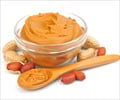Clinton’s Nutrition Deal with five giant snack makers has come to an agreement to discourage schools from stocking vending machines with snacks high in calories, sugar fat, and salt.
Clinton’s Nutrition Deal with five giant snack makers has come to an agreement to discourage schools from stocking vending machines with snacks high in calories, sugar fat, and salt. While lauded by some as a good effort, others criticized it as toothless.
The companies, , Mars Inc., Kraft Foods Inc., Campbell Soup Co., PepsiCo Inc. and Dannon agreed to begin the promotion of snacks that meet new nutrition guidelines backed by the American Heart Association.As Clinton acknowledged, ``This is voluntary, they don't have to do it,'' speaking of the companies and the schools. ``But they recognize the challenge we face and they are helping us take the first step.''
Certain the companies that make everything from M&M's, yogurt and granola bars to Frito-Lay potato chips would have to reformulate some products or introduce new lines of healthier snacks for children.
Others will be urging schools to buy healthy, rather than cater to student cravings.
Some of the items that are to be banned are fatty, extra-salty soups, calorie-ladden candy bars, and any other snack that contains trans fats. Low-fat chips (baked, not fried) and low-sugar yogurts will be in.
Clinton announced this initiative in a high school gymnasium in Harlem but admitted that plan's success would mainly depend on the participation of schools, which will continue to be free to buy whatever they like.
Advertisement
Janey Thornton, president of the School Nutrition Association and a child nutrition director in Kentucky, commended the program but warned that it should not be seen as a substitute for federal legislation enacting stronger health standards for school food.
Advertisement
According to the food guidelines set under the agreement snacks marketed to schools wouldn't get more than 35 percent of their calories from fat and more than 10 percent from saturated fat. There will be a limit of 35 percent for sugar content by weight.
This would translate into a ban on the regular-sized Snickers bar for students in participating schools, because 130 of its 280 calories come from fat, and contains 30 grams of sugar, out of 58.7 total.
The agreement was the product of the work by the Alliance for a Healthier Generation, which is a project of the William J. Clinton Foundation and the American Heart Association.
In May, the alliance announced an agreement with beverage industry leaders to sell only water, unsweetened juice and low-fat and nonfat milk in elementary and middle schools.
The challenge the group is facing is a problem which arose in the mid-1980s, when financially struggling schools across the country invited private vendors, offering a wider variety of foods causing many millions of students satisfy their hunger and thirst with chips and soda, rather than what was on the school lunch menu.
Make healthy food alluring enough to win over those kids might be a tough task.
Source-Medindia
NLA











